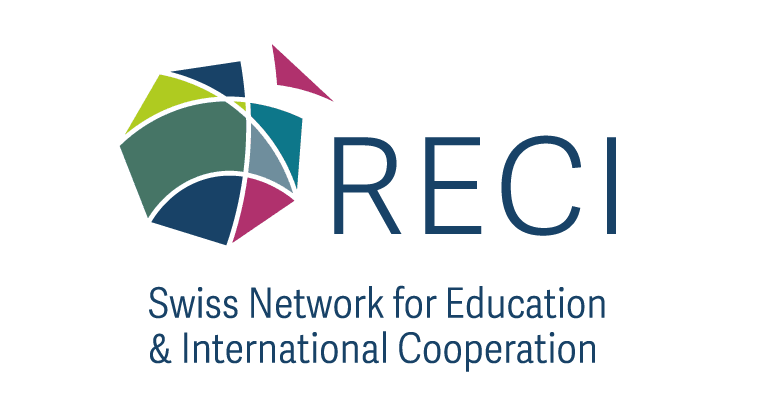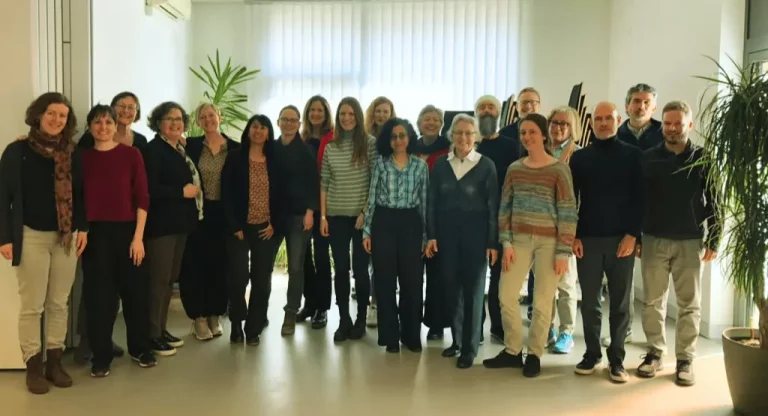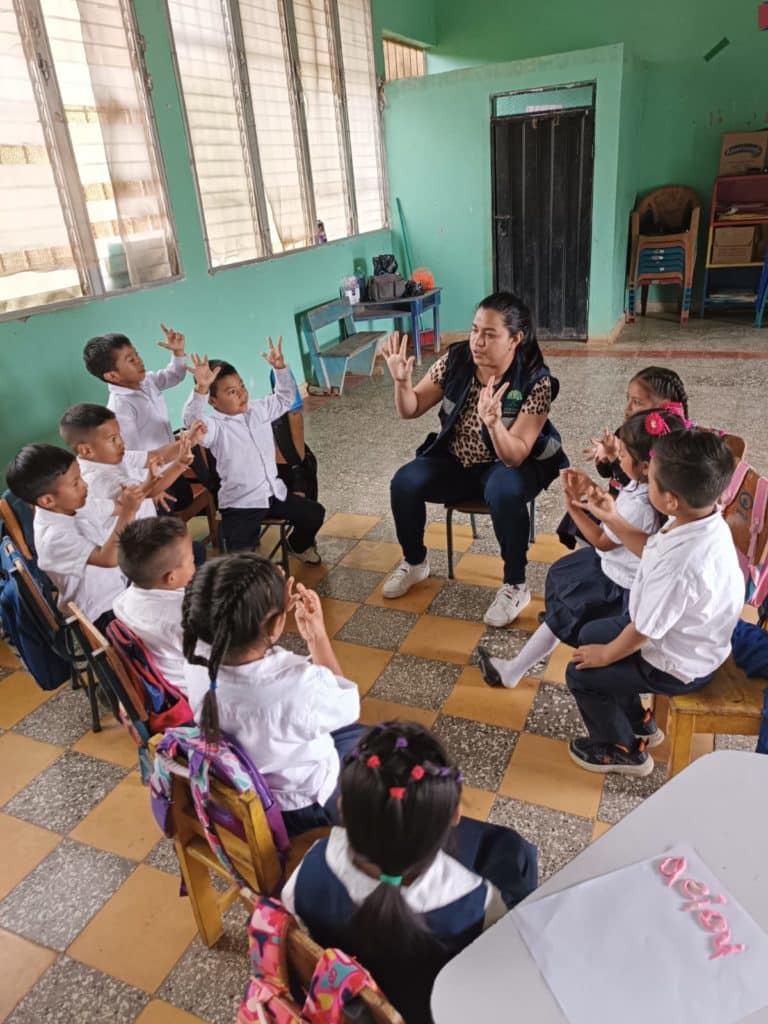Paper Summary
RECI expressed its concerns regarding the new Swiss International Cooperation Strategy 2025-2028 during the optional consultation procedure.
While Switzerland has been increasingly promoting education on the international stage in the past years, RECI is disappointed that this priority is not adequately reflected in the new strategy. It emphasises the fundamental importance of education as a human right and a prerequisite for achieving all other Sustainable Development Goals (SDGs). RECI also expresses its concerns about the reduction of the international cooperation budget and stresses that the exceptional financial assistance to Ukraine must be financed through a supplementary credit to ensure that long-standing investments are not jeopardised and that the poorest countries can continue to be supported.
In its position paper RECI puts forward specific recommendations, such as placing greater emphasis on education as a central theme of human development, promoting an inclusive educational continuum, and highlighting the role of education in achieving SDGs related to sustainable economic development, the environment, peace, and governance.
Swiss International Cooperation Strategy 2025-2028
RECI statement within the optional consultation procedure
“Without education there can be no development.”
Federal Councillor Ignazio Cassis at the second IC Forum
Geneva, February 15, 2023
https://www.admin.ch/gov/en/start/documentation/media-releases.msg-id-93098.html
RECI is the Swiss Network for Education and International Cooperation. With its 40 members – NGOs, academic institutions, grant-giving foundations and individual experts, RECI promotes the right to quality education and lifelong learning for all worldwide.
RECI welcomes the opportunity to comment on the draft Swiss International Cooperation Strategy 2025-2028 as part of the consultation process. We kindly ask you to take into account the following inputs, which have been jointly developed and approved by RECI members.
I. Introductory remarks
1. Switzerland as advocate for education through bilateral and multilateral engagement
Switzerland has positioned itself as an important advocate and supporter of education through its bilateral and multilateral engagement and its notable contributions to the international policy dialogue on education in the past years. The establishment of the Geneva Global Hub for Education in Emergencies, Switzerland’s representation in the board of the Global Partnership for Education (GPE), its support to Education Cannot Wait (ECW) and its strong pledges for education at the Global Refugee Forum are just a few examples of this important engagement, which is very visible and well recognized internationally. RECI strongly appreciates and supports this engagement. All the more we are surprised to see the priority Switzerland is giving to education in international policy dialogue is not adequately mirrored in the new Swiss International Cooperation Strategy 2025-2028.
2. Swiss cooperation, Agenda 2030 and the human rights framework
The major paradigm shift of the 2030 Agenda is the shared responsibility of all countries for sustainable development. It also enshrines the central principle to “leave no one behind”. It is an inclusive agenda whose 17 goals are interlinked and mutually dependent.
The Agenda 2030 is oriented towards and based on the international human rights framework. Education is a basic human right in itself, as well as the means to realising all other human rights. SDG 4 on education is both a goal in its own right and a prerequisite for achieving all other goals. In addition, the implementation of the right of all people to have access to a good quality, inclusive and equal education is the cornerstone for ensuring that no one is left behind. Only on this basis is the basic precondition given that minorities most at risk, including persons with disabilities, can benefit equally from other measures and projects, for example the creation of decent jobs.
Therefore, education must be recognised as a focus of IC across countries and sectors. Especially in the current discourse on our climate future (to name just one cross-cutting example), quality education and lifelong learning for all must be the basis for people to make informed and self-reflective decisions that contribute to sustainable global solutions. RECI welcomed the recognition of the importance of education for all development objectives by Federal Councillor Ignazio Cassis at the second Swiss IC Forum in Geneva on February 15, 2023.
Against this background, it is important to include education as a priority topic, as well as to mention its irreplaceable role for the successful achievement of the other objectives.
3. Quality education and lifelong learning for all: using Swiss Know-how
For education to unfold its power for sustainable development, it needs to be viewed and addressed in a holistic way. Hence, RECI advocates for a transformative understanding of quality education, which serves as a cross-sectoral catalyst for sustainable development and the creation of a just and peaceful society. Investment in education needs to be addressed in a sense of an inclusive and permeable continuum of education for all, including early childhood education, basic education, secondary education, vocational and university education and adult education and training in formal, non-formal and informal contexts, with participation of all relevant stakeholders at all levels (including decentralised governance) that ensures approaches adapted to the local context and where no one is left behind.
It is this integrated view on education shaping Swiss education policy and governance that creates the value and quality of Swiss education and is at the core for the success of the Swiss dual education system, and notably the quality of its VET.
In this respect, the IC Strategy must use Swiss know-how and do justice to the different levels of education, the permeability among these, as well as across the different areas of education in a balanced and holistic way, instead of focusing primarily on VET.
Furthermore, Swiss NGOs working in Switzerland and worldwide, many of whom with strong expertise and active engagement in education, represent a comprehensive, and indispensable part of the wealth of Swiss know-how that makes significant contributions to the achievement of Switzerland’s IC, and should be recognised, as well.
II. Specific recommendations
We share the following recommendations specific to education, as defined above:
(1) Goal “Human Development”: Highlight education as key topic
We recommend highlighting education as a key topic for human development by adding a specific paragraph on education under the goal “human development”, to make Switzerland’s commitment in this area more visible. This is important for the following reasons:
- Education is a basic human right. Education is crucial for the learning and wellbeing of individuals and a prerequisite for them to develop their full potential. Education is also a catalyst for sustainable development, the creation of just and peaceful societies and sustainable economic development. Therefore, education is key to addressing the global challenges the world is facing today. During humanitarian crises, education is a protective and life-saving intervention for children and youth, and facilitates post-crisis recovery of societies. In the context of climate change, education enables people to take informed and self-reflective decisions that contribute to sustainable global solutions.
- There is a global learning crisis: millions of children and youth are not learning essential foundational skills; either because they are not in school, or they are in school, but not learning. UNESCO predicts that by 2030, 20% of young people 14-24 and 30% of adults will be unable to read. The global learning crisis has been massively exacerbated by the compounded effects of conflicts, the Covid-19 pandemic and climate change. The number of children in need of urgent education support alone has tripled since 2016 to 222 million. Children and youth most affected by inequality and discrimination have been most impacted, including girls, those with disabilities, refugees, migrating & displaced children, and those from the lowest-income households. At the same time, education is the most underfunded SDG, and the funding gap is widening with the increase in unmet education needs across the world.
(2) Goal “Human Development”: Highlight the importance of the education continuum and promote education holistically
We strongly recommend addressing the topic of quality education in a holistic manner, paying recognition to the importance of an inclusive and permeable continuum of education from early childhood education to basic, secondary, tertiary, vocational and adult education and training in formal, non-formal and informal settings. Investment in vocational education and training can only be meaningful, if it can build on a sound basis of quality basic education, and if it can rely on a meaningful continuation in adult education and training that helps ensure an innovative and human labour market providing decent work and employment opportunities in non-discriminatory settings.
In this respect, the IC Strategy must pay justice to the different levels of education in a balanced and holistic way, instead of focusing primarily on vocational education and training.
(3) Goals “Sustainable Economic Development”, “Climate and Environment”, “Peace and Governance”: Highlight education as a basis for their realisation
Besides education being a development goal in itself, it is also a means for attaining all other SDGs: education is not only an integral part of sustainable development, but also a key enabler for it as Mr. Cassis so rightfully pointed out earlier this year. Regrettably, the proposed Swiss IC Strategy 2025-2028 does not reflect this catalyst role of education with regards to its stipulated goals. In our view, this is a missed opportunity that comes with opportunity costs in the mid and long term.
We therefore recommend to mention education and its irreplaceable role for the successful achievements of objectives of the IC Strategy in the following sections:
Sustainable economic development
Education provides current and future workforces with the skills and competencies required to keep the economy running, to create decent jobs, to fuel innovation and competitiveness and to generate productivity gains. Quality basic education is also a prerequisite for skills-based TVET that meets the needs of the labour market. Education is thus vital for economic development and education financing provides high returns on investment. In addition, the growing digital divide requires the provision of foundational skills and e-literacy education that are accessible to all.
Furthermore, inclusive economic development, i.e. “leaving no one behind”, is only possible if disadvantaged people have equal access to quality education. Moreover, Switzerland’s cooperation on education should include people on the move including persons in vulnerable situations.
Climate and environment
By improving knowledge, instilling values and shifting attitudes, education has the ability to increase environmental awareness and concern, and has considerable power to change environmentally harmful lifestyles and behaviour, for example resource use patterns. Education also makes people more engaged and more likely to support political decisions that protect the environment.
In addition, education enables people to adapt to the consequences of climate change by fostering resilience and reducing vulnerability. Strategies to mitigate climate change impacts should thus include education components to improve people’s understanding of the risks, of the need to adapt and of viable mitigation measures.
Peace and governance
Education contributes to conflict prevention: it is a key mechanism for promoting tolerance, appreciation of diversity and social cohesion. Education also plays an important role post-conflict as a means of contributing to social transformation and reconciliation; for example, by analysing education policies and curricula in terms of their potential to aggravate or alleviate conflict.
Equitable access to education is a precursor for equal participation of people of all genders, for minorities and marginalised groups in political processes. It strengthens inclusive, participatory and representative decision-making by enabling people to come to informed judgements about issues that concern them, to engage more actively and constructively in political debates and to hold political actors accountable. A strong civil society is essential to functioning democratic institutions and the rule of law. The most important strength of civil society actors is their capacity for critical analysis and action, for which a strong education system is a paramount precondition. Education also helps to reduce political corruption by fostering support for the institutional checks and balances that are necessary to detect and punish abuses of office, and it also lowers tolerance towards corruption.
Cross-cutting issues: gender equality and respect for human rights
Education is vital in the strive for gender equality. It enables women, men, boys and girls to identify different forms of gender discrimination, violence and inequality, to understand their causes and to take action to overcome them. Being aware of opportunities and benefits provided by full gender equality and participation in legislative process and decision-making, as well as governance is equally important. Education enables women and girls to make more informed choices about their lives, to make their voices heard and to secure decent employment.
Education is also an important factor in promoting human rights: It enables people to be aware of their rights, how to claim and defend them and has an important role in safeguarding children and adults from exploitative and hazardous labour and sexual exploitation. Human rights education is essential for the promotion and achievement of stable and harmonious relations among communities and for fostering mutual understanding, tolerance and peace.
III. General recommendations
Additionally, we would like to share to following general recommendations:
(1) Avoid massive decline in ODA quota
Against the backdrop of growing global challenges, stagnation in the achievement of the SDGs, rising inflation and high contributions for Ukraine, the projected ODA/GNI ratio of 0.36% (excluding asylum costs) is insufficient. The ratio is below 0.4% for the first time since 2013. The ratio has averaged 0.42% over the last 10 years. The proposed figure for 2025-28 is as low as it was 20 years ago, in 2003. The IC framework credit must therefore be adjusted to achieve a projected ODA/GNI ratio (excluding asylum costs) of at least 0.42% and ideally 0.45% for 2025-28. In the long term, the UN target of 0.7% (including asylum costs) is to be achieved.
(2) Extraordinary accounting of funds to support Ukraine and the surrounding region (humanitarian aid and reconstruction)
The planned support for Ukraine in the amount of 1.5 billion or 13% of the IC framework credit is at the expense of other important crises and needs in the Global South. Due to the extraordinary security situation in Europe since the war in Ukraine and the developments in connection with the war that are difficult to predict and plan, expenditure in connection with the Ukraine war can and must be booked on an extraordinary basis (Nachtragskredit/crédit supplémentaire).
Continuation of long-lasting cooperation, as well as a focus on least developed countries and crisis affected areas in the Global South need to be assured.
(3) Going beyond crisis response – addressing the root causes
Human rights as the basis of democratic societies must have priority over other and particular interests. Against this background, the mention of access to quality education for all as a focus of humanitarian aid as well as a cross-cutting issue within other sectors of international cooperation is welcome. In addition, RECI is stressing the need to strengthen policy coherence across all policy areas, especially economic, financial and tax policies affecting developing countries, as well as migration policies.
To go beyond a crisis response, developing countries need an environment that allows them to finance and develop their basic services independently. Switzerland should use its privileged position as one of the richest countries in the world with one of the most important global banking centres to influence multinational organisations towards building just financial and tax systems. Until progress is achieved on that level, Switzerland should strive towards increasing its IC budget for education to approach the level defined in the rule of thumb for budgeting for education on a national level of 20% for developing countries.
As pointed out above, investing in quality education means going beyond crisis response as it allows for addressing the root causes of economic, ecological and governance challenges. To achieve its potential, education needs to be considered as a whole – lifelong learning and transformative and inclusive education.
Vicques, September 18, 2023
On behalf of the Board and the members of RECI
Beatrice Schulter, Executive Director, beatrice.schulter@reci-education.ch


